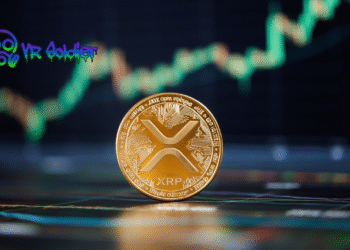Cryptocurrency exchanges have been at the forefront of the digital revolution, enabling individuals to buy, sell, and trade cryptocurrencies with ease. However, recent lawsuits and regulatory scrutiny have brought significant challenges to these platforms. As the cryptocurrency market continues to evolve, it is important to assess the changing landscape of exchanges, including potential shifts in user behavior, exchange policies, and the emergence of new market players.
Users Awareness
One of the key aspects shaping the future of cryptocurrency exchanges is user behavior. The recent lawsuits and regulatory actions have raised awareness among users about the risks associated with centralized exchanges. As a result, individuals are becoming more concerned about the security of their funds and the privacy of their personal information. This has led to a growing demand for decentralized exchanges (DEXs), which operate on blockchain technology and eliminate the need for intermediaries. DEXs offer users greater control over their assets and reduced reliance on centralized authorities, making them an attractive alternative in the evolving landscape.
Improved Compliance
Exchange policies are also undergoing significant changes. In response to regulatory pressure, exchanges are implementing stricter Know Your Customer (KYC) and Anti-Money Laundering (AML) procedures. This is aimed at improving compliance and reducing the risk of illegal activities, but it may also lead to increased barriers to entry for new users. Additionally, exchanges are focusing on enhancing their security measures and implementing robust risk management protocols to prevent hacking incidents and protect user funds. These policy changes are vital for the long-term sustainability and legitimacy of cryptocurrency exchanges.
New Market Players
Furthermore, the recent lawsuits have opened the door for new market players to enter the scene. Traditional financial institutions are increasingly recognizing the potential of cryptocurrencies and blockchain technology. As a result, we are witnessing the emergence of regulated and institutional-grade exchanges that cater to professional traders and institutional investors. These exchanges offer advanced trading features, regulatory compliance, and increased liquidity, attracting a different segment of the market and potentially bridging the gap between traditional finance and the cryptocurrency world.
Conclusion
The future of cryptocurrency exchanges will be shaped by changing exchange policies, changing user behavior, and the emergence of new market actors. A growing need for more security and user control is reflected in the growth of decentralized exchanges. In order to create a more reliable and trustworthy business, more rules and compliance procedures are changing how exchanges operate. Furthermore, the participation of established financial institutions is probably going to boost the market’s professionalism and liquidity. Exchanges must adjust to these developments as the bitcoin ecosystem develops and offer ground-breaking solutions that satisfy both changing customer expectations and legal constraints.
Disclosure: This is not trading or investment advice. Always do your research before buying any cryptocurrency or investing in any projects.
Follow us on Twitter @thevrsoldier to stay updated with the latest Metaverse, NFT, A.I., Cybersecurity, Supercomputer, and Cryptocurrency news!
Image Source: Photo by RODNAE Productions // Image Effects by Colorcinch












